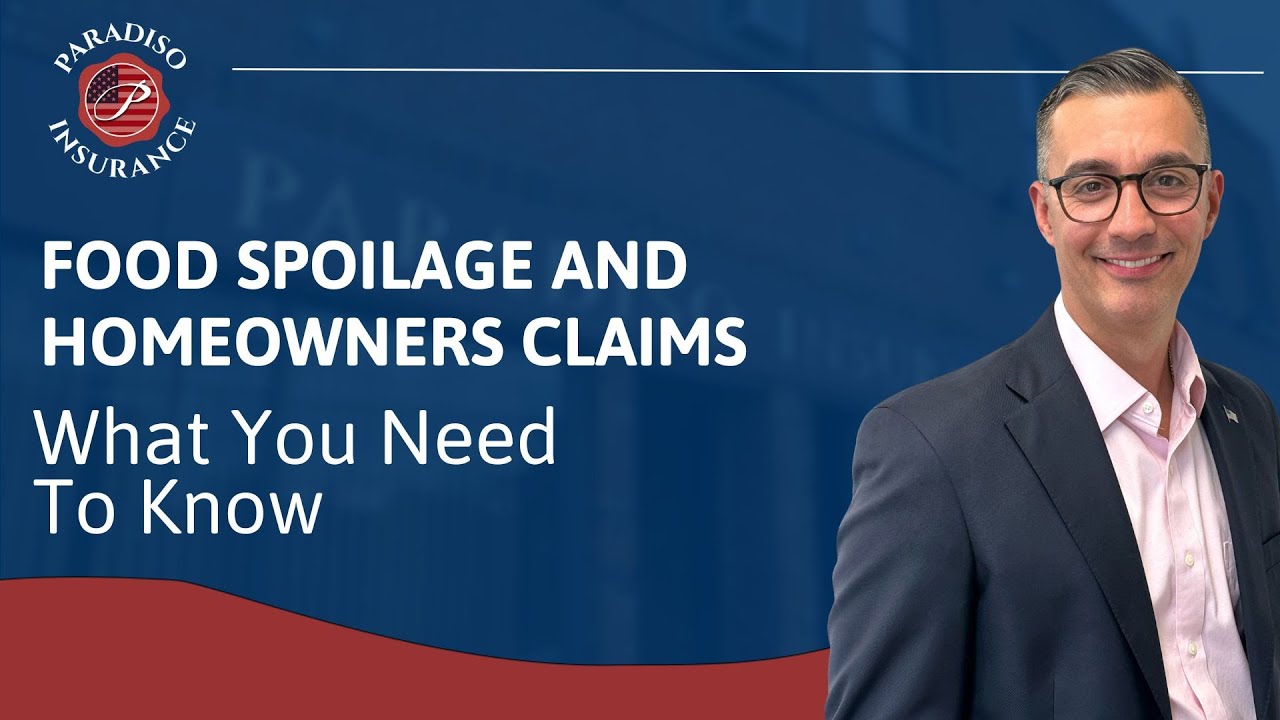
Picture this: a powerful storm rolls through your neighborhood, knocking out power for hours—or even days.When the lights finally come back on, you open your refrigerator to find spoiled milk, thawed meat, and a pungent odor that confirms your worst fears.Food spoilage can be a frustrating and costly consequence of power outages, mechanical breakdowns, or other unexpected events.
But did you know that your homeowners insurance might help cover the cost of replacing your spoiled food? In this blog, we’ll explore everything you need to know about food spoilage and homeowners claims, including what’s typically covered, how to file a claim, and tips to prevent spoilage in the first place.Why Does Food Spoilage Happen? Food spoilage occurs when perishable items like meat, dairy, and produce are exposed to unsafe temperatures for an extended period.This can happen for several reasons: 1. Power Outages 2. Mechanical Failures 3. Human Error Does Homeowners Insurance Cover Food Spoilage? The good news is that many homeowners insurance policies include coverage for food spoilage—but it’s not always automatic, and there are limitations to be aware of.
Let’s break it down: 1. Covered Perils Food spoilage is typically covered if it’s caused by a peril listed in your policy.Common covered perils include: 2. Exclusions It’s important to note that not all causes of spoilage are covered.For example: 3. Coverage Limits Most policies have a limit on how much they’ll pay for food spoilage.
For example: How to File a Food Spoilage Claim If you experience food spoilage due to a covered peril, follow these steps to file a claim: 1. Document the Loss 2. Contact Your Insurance Company 3. Provide Proof of the Cause 4. Review Your Policy Real-World Case Study: When Food Spoilage Is Covered Case Study: The Ice Storm OutageA homeowner in Michigan experienced a three-day power outage after an ice storm damaged power lines in their neighborhood.When the power was restored, they discovered that all the food in their refrigerator and freezer had spoiled.The homeowner’s insurance policy included coverage for food spoilage caused by power outages.
They filed a claim and provided: The insurer approved the claim and reimbursed the homeowner for the full $400, minus their $100 deductible.Tips to Prevent Food Spoilage While insurance can help cover the cost of spoiled food, prevention is always better than cure.Here are some tips to minimize the risk of food spoilage: 1. Invest in a Backup Generator 2. Monitor Refrigerator Temperatures 3. Keep Doors Closed 4. Maintain Your Appliances 5. Stock Up on Ice The Hidden Benefits of Food Spoilage Coverage Beyond financial reimbursement, having food spoilage coverage offers several hidden benefits: Don’t Wait Until It’s Too Late Food spoilage might seem like a minor inconvenience, but the costs can add up quickly—especially if you’re dealing with a full refrigerator or freezer.
Understanding your homeowners insurance policy and taking proactive steps to prevent spoilage can save you time, money, and stress in the long run.So, homeowners, the time to act is now.Review your policy, invest in preventive measures, and ensure you’re prepared for whatever comes your way.
Need help understanding your coverage? Contact your insurance agent today to get the answers you need and the peace of mind you deserve.Are you ready to protect your home and your wallet from unexpected losses? Reach out to an insurance professional today to explore your options and ensure you’re fully covered.Your peace of mind—and your groceries—are worth it!
Publisher: Paradiso Insurance








